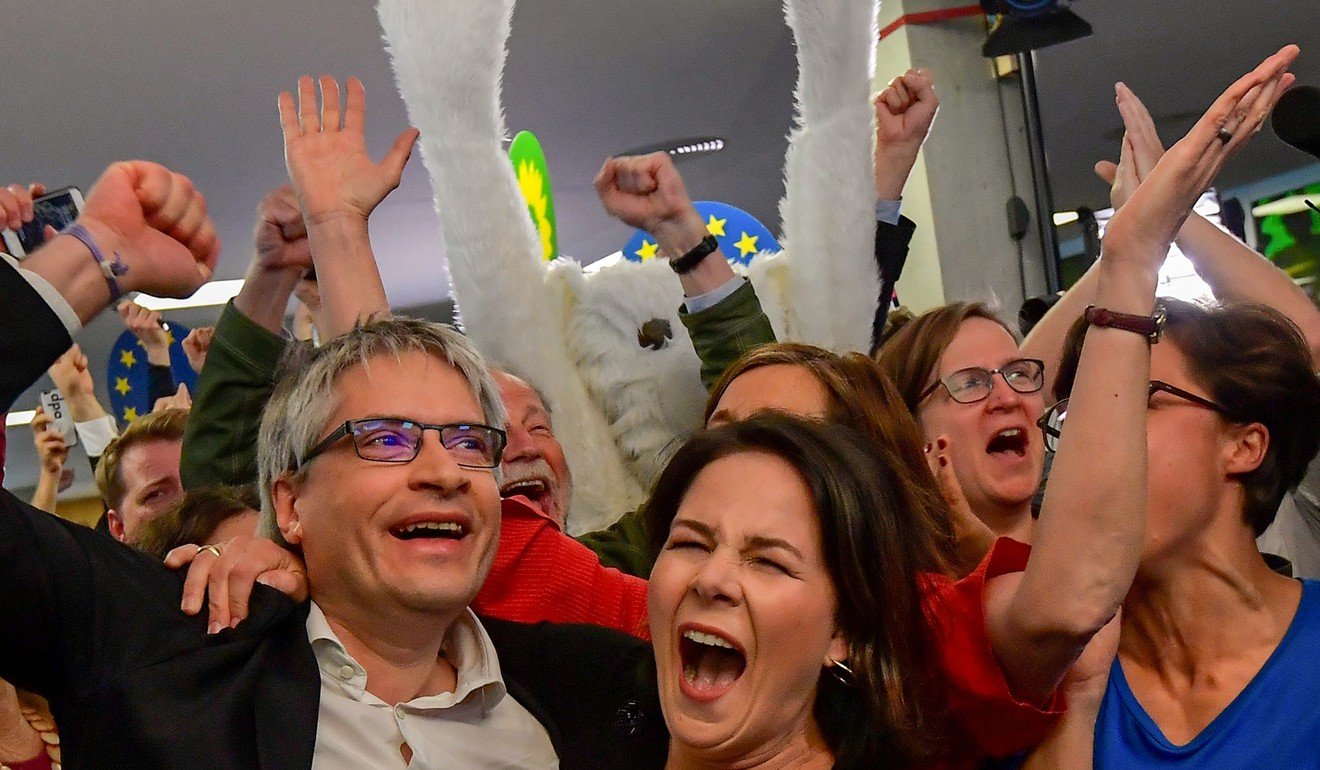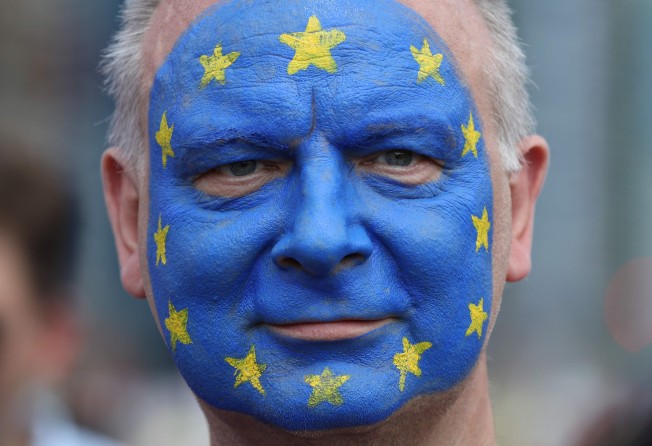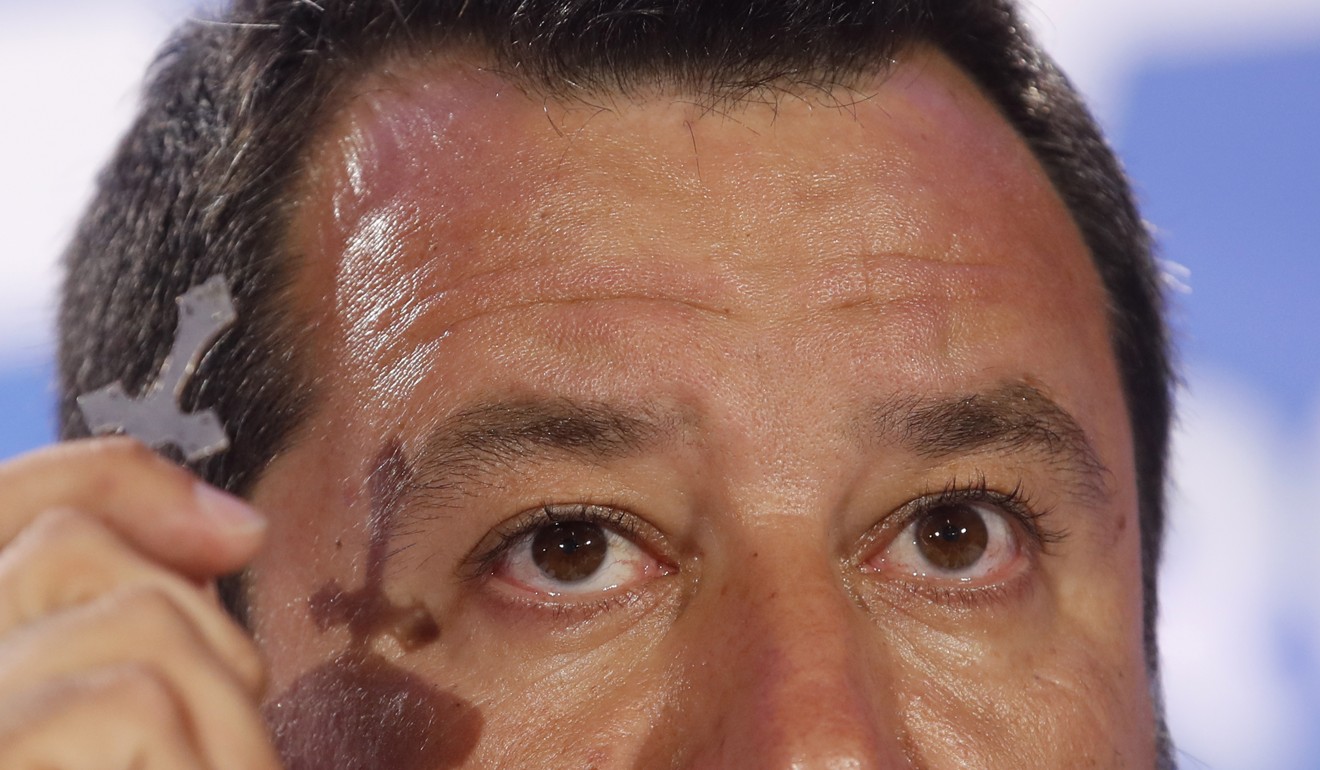
Five key takeaways from the European parliament elections
- The EU elections have been marked by successes for the far right, a surge by the Greens and setbacks for traditional parties across the continent

Traditional centrists significantly weakened
It was a bad election for the centre-left across Europe. The loose Social Democrat grouping in the European parliament is projected to lose 41 seats in the 751-seat chamber, going from 191 in 2014, to a projected 150 now.
It wasn’t much better for the centre-right either with the European People’s party bloc (EPP) projected to shrink from 221 seats down to 179 although it will remain the biggest grouping.
Together, the groups are on course to lose their majority and will be forced to look to the Greens and Liberals to govern.

The Greens enjoy wave of support
The Greens nearly doubled their vote to finish second on 21 per cent, ahead of the Social Democrats. Many of the gains came from the northern European countries that were once the continent’s industrial heartlands but where, often inspired by 16-year-old Swedish climate activist Greta Thunberg, young people have taken to the streets to demand a break from a legacy of dependence on fossil fuels.
Germany’s Greens leapt into second place behind chancellor Angela Merkel’s CDU conservatives, with a third of its voters under the age of 30.
“This election was above all about the issue of climate and climate protection,” acknowledged Annegret Kramp-Karrenbauer, leader of the German Christian Democrats (CDU), currently the biggest European party in the EU chamber along with Italy’s league and the UK’s Brexit party.
Greens also doubled their share of the vote to take two seats in Finland and Denmark, won their first two seats in Ireland in two decades, grabbed third place in France and were set for strong showings in Belgium, the Netherlands
The far-right didn’t reach expectations
Despite a strong showing in countries such as Poland, Hungary and Italy, the widely predicted far-right surge did not fully materialise.
A strong showing for the pro-EU middle ground, typified by Spain’s socialist PSOE, dented the hopes of far-right leaders that the polls would provide a final breakthrough and present an opportunity to shape policy in Strasbourg.
Matteo Salvini, leader of Italy’s far-right League and deputy prime minister, called the elections a mandate for a shake-up in Brussels.
But although the Nationalists bloc to which the League belongs increased their seats in Strasbourg to 58, the result fell short of expectations.

A new middle ground emerges
While the classic centrist parties did lose ground in some countries such as Germany, the overall picture was that the four loose parliamentary groups occupying the pro-EU middle ground lost fewer than 20 seats, securing 505 seats out of 751, according to a projection by the European parliament. This is due to a strong performance from parties in the Liberal Democrat grouping in parliament. Emmanuel Macron’s En Marche group in France is included in this bloc and although it came second to Marine Le Pen’s National Rally, it has again succeeded in supplanting the old Gaullist and Socialist parties in the centre ground of French politics.
The Lib Dems in Britain also contributed to the surge in support for the Alliance of Liberal Democrats for Europe (ALDE) bloc, which looks to have gained 40 seats.
Guy Verhofstadt, the Belgian politician who leads the ALDE group, said the traditional centrist parties had been weakened and that they would now have to turn to ALDE for help in forming a coalition.
The ALDE group would emerge as the bloc with the biggest gains, he said.
So while Salvini might proclaim that a “new Europe” has been forged by the far right, it could also be argued that a new middle ground has emerged to prop up the EU.
Turnout: the big winner
EU officials were delighted by an increase in turnout to 51 per cent, up from 43 per cent in 2014. It was the first reverse in a trend of falling participation since the first direct EU vote in 1979.
The turnout may muffle talk of a “democratic deficit” undermining the legitimacy of the EU. Luxembourg’s liberal Prime Minister Xavier Bettel tweeted: “Europe wins! Voter turnout very high and pro-European parties are strongest.”